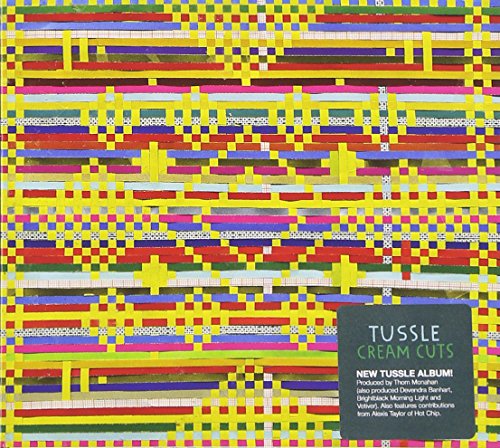
Tussle
Cream Cuts
Release Date: Aug 26, 2008
Genre(s): Indie, Rock
Record label: Smalltown Supersound
Music Critic Score
How the Music Critic Score works
Album Review: Cream Cuts by Tussle
Excellent, Based on 3 Critics
Based on rating 8.5/10
The third album from San Francisco-based Tussle, and first for Norway’s Smalltown Supersound, is the most bugged version of their tranced-out minimal garage funk to date. Its kraut-grooves will reward those who have enjoyed the endeavors of wonky percussion wizards like Excepter and Gang Gang Dance but who perhaps have been waiting for a similarly inclined outfit to cut back on the free-noise meandering and just straight go for it. In the contemporary indie scene it may seem like dance-rock tendencies have exhausted themselves for the time being, but Tussle re-engages this hybrid territory on the tripped-out echoey side of things, instead of welding the skeletal live-kit white-guy beats to cocky pop songs.
Based on rating 8/10
Working with new bassist Tomo Yasuda and producer Thom Monahan, on Cream Cuts Tussle find ever more sophisticated ways to build, and deconstruct, their massive grooves. Taking a more overtly organic approach than they did on Telescope Mind, Tussle make the most of Monahan's punchy, roomy production with some of their most elaborate, yet unfussy, rhythms and an atmosphere that suggests Telescope Mind's sleek machinery after being abandoned in a jungle for a few years. "Transparent C" piles creaking and decaying synths on top of a tribal beat that is undeniable but not too oppressive, and "Rainbow Claw"'s dystopian groove is briskly metallic, hurtling guitar shrapnel and shrieking keyboards in its wake.
Opinion: Very Good
Among major U.S. cities, San Francisco is unique in its ability to produce bands that are more likeable in theory than in reality. Matmos is the classic case here – it’s not that the music is unenjoyable, but that it’s often more stimulating to parse than to submit to. If “submit” raises a red flag, good: the distinction between intellectual and bodily enjoyment emerges from the music itself as much as it’s imposed from outside.

